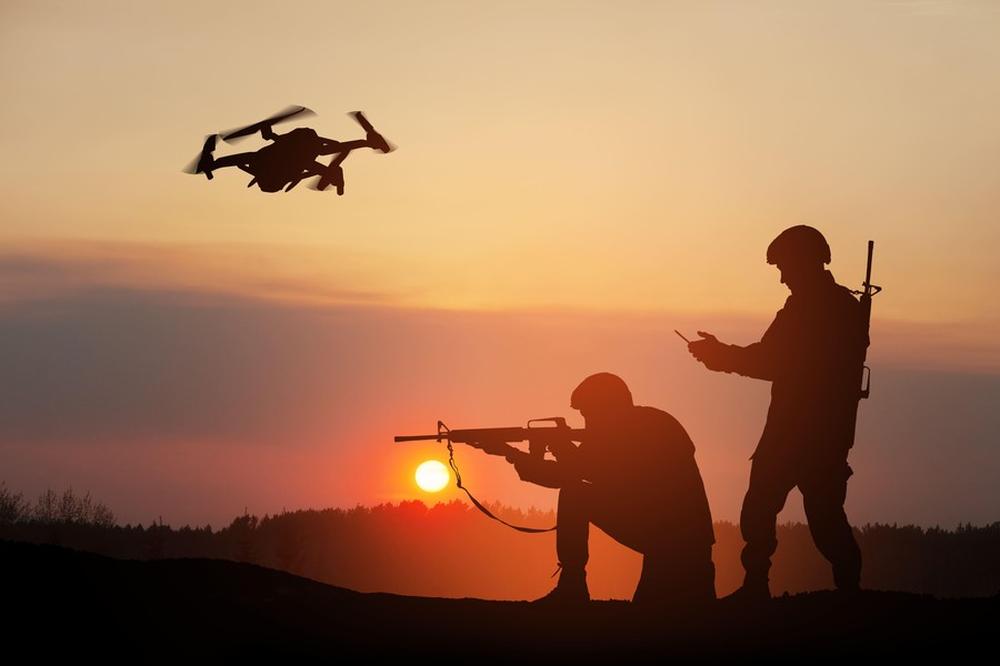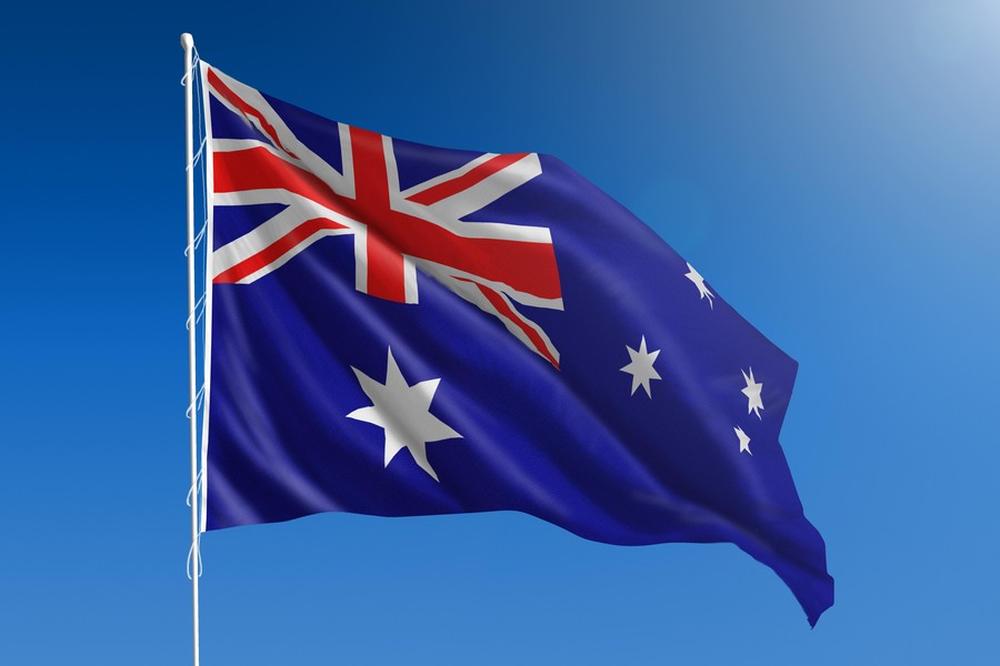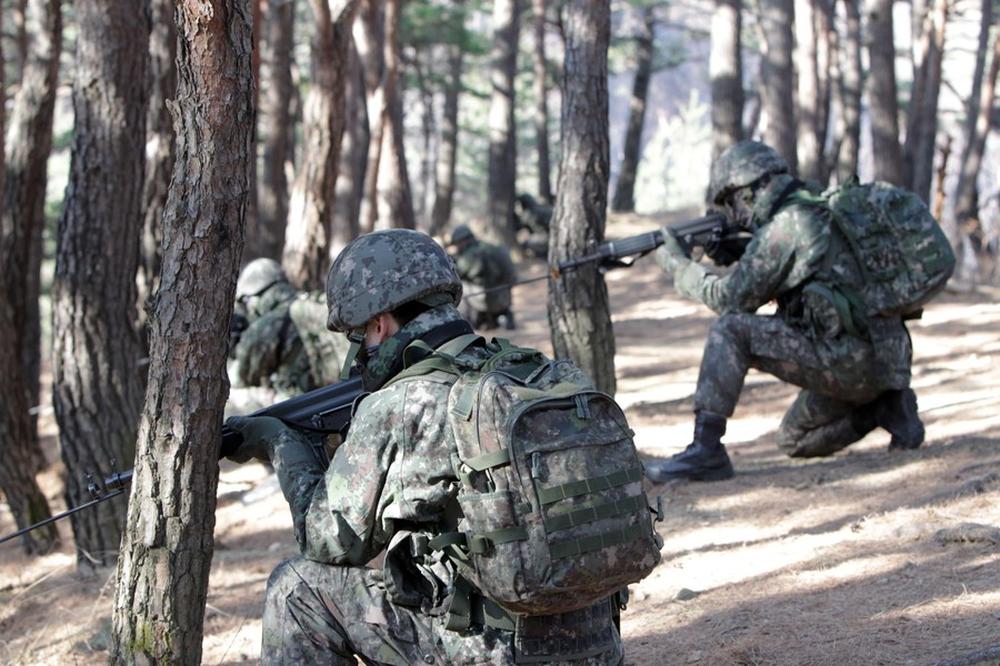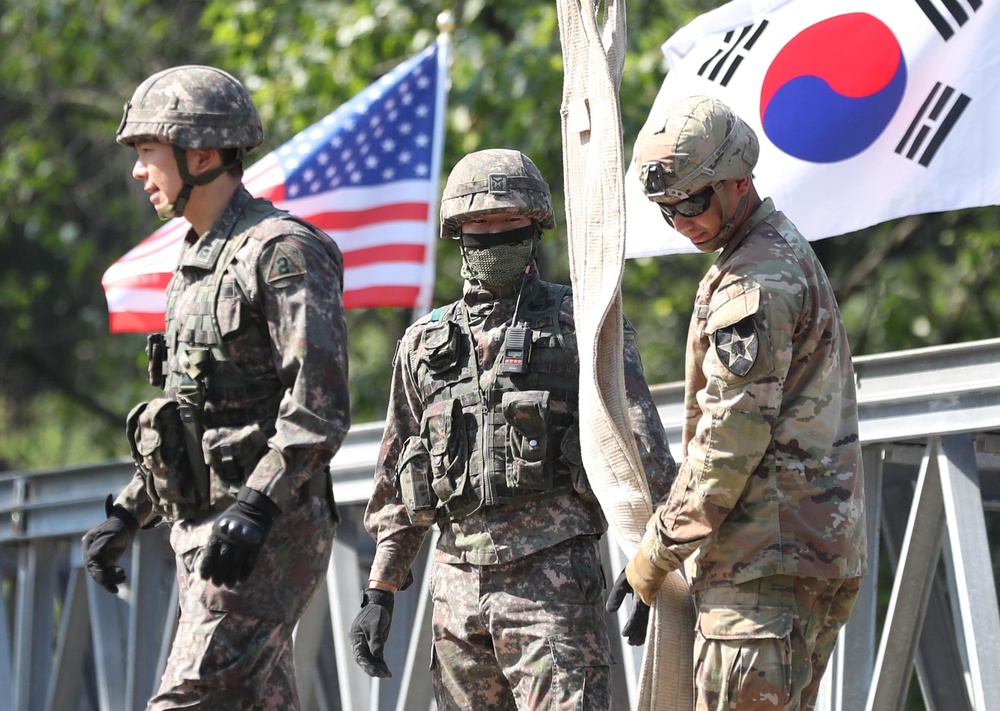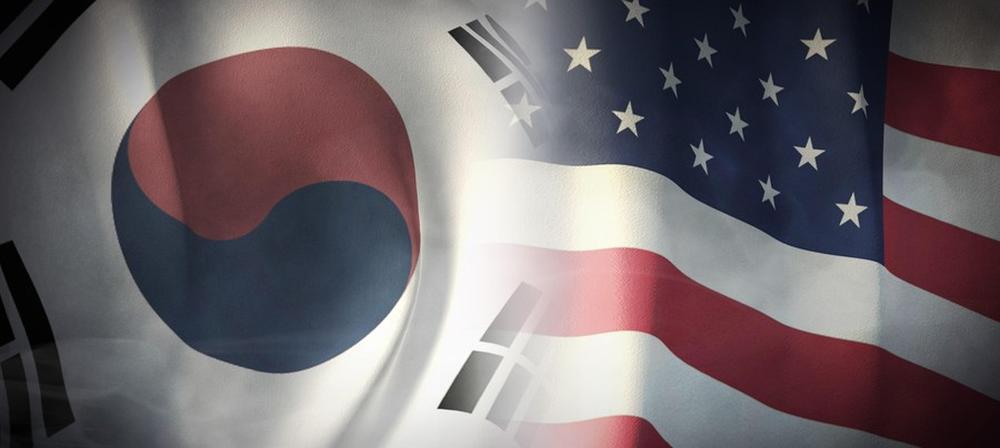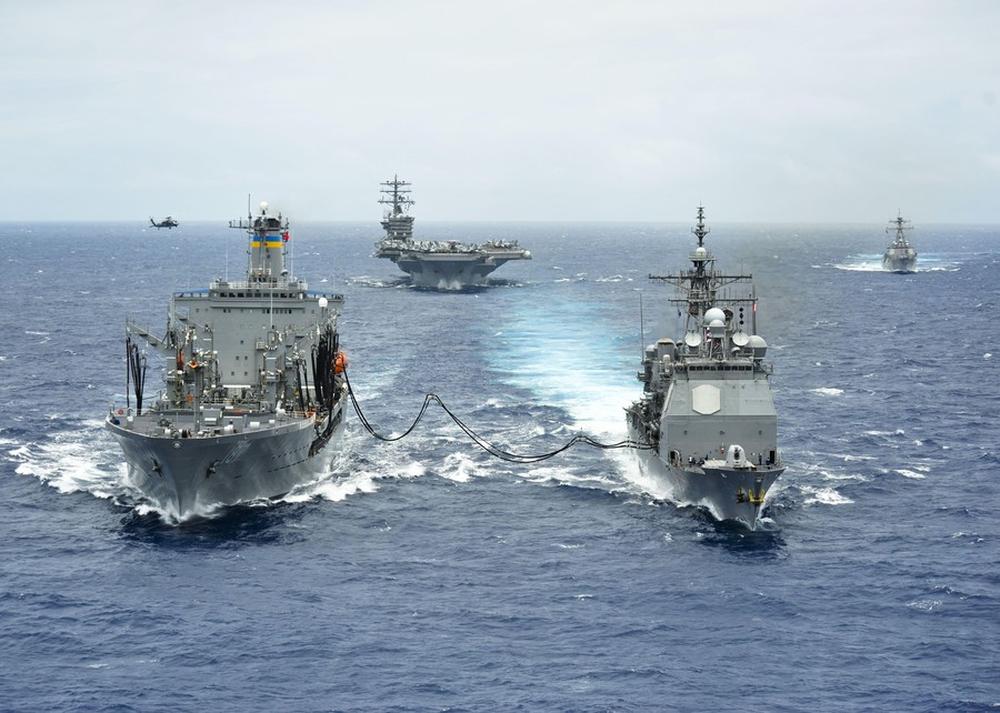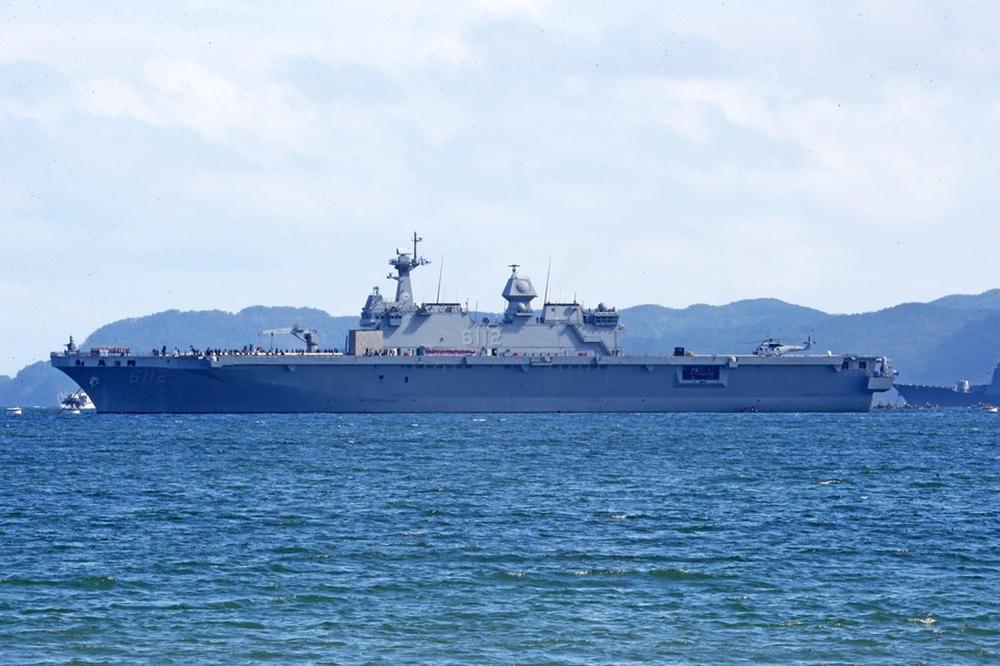- #Global Issues
- #Multilateral Relations
- #Security & Defense
- #US Foreign Policy
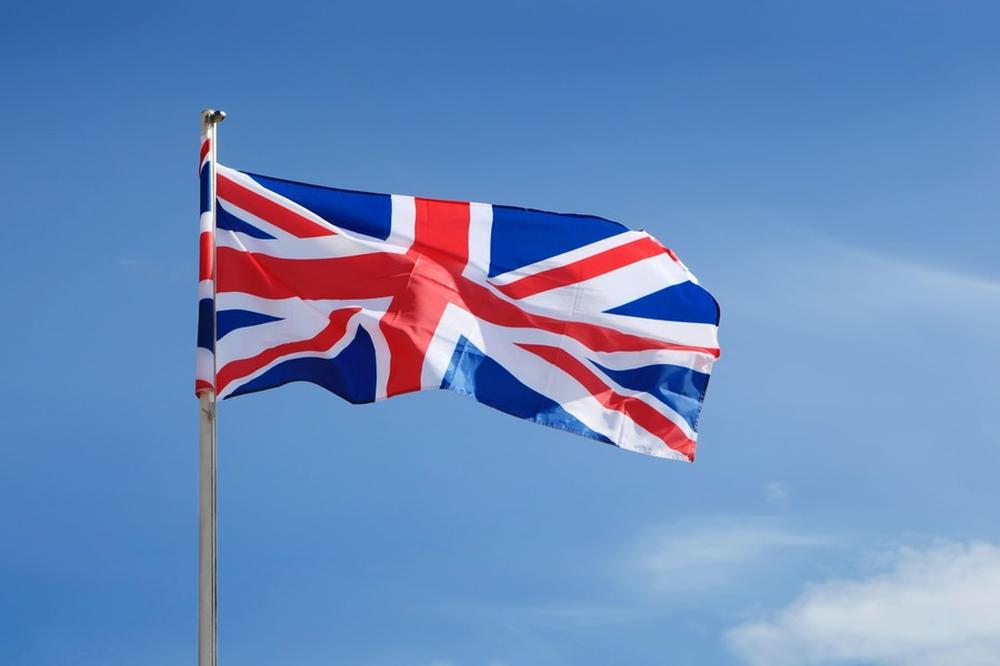
► Questions arose as to whether the UK’s progressively downsized post-Cold War defence capabilities could continue to fulfil Whitehall’s ambitions, as a permanent member of the UN Security Council, to remain a global security actor.
► In the past 5 years since 2018, the UK government has stepped up its defence engagement, as part of a broader effort to deepen the UK’s ties with the Indo-Pacific.
► The UK wishes to see the ROK engaged more actively in regional and global security beyond the confines of the Korean Peninsula. The UK sees South Korea as a partner for “defending freedom, maintaining regional security and upholding the rules based international order.”
The UK has maintained a modest but continuous military presence in the Indo-Pacific region since drawing down its post-colonial defence commitments ‘east of Suez’ in the early 1970s. In the ensuing decades, Britain’s willingness to send expeditionary deployments and participate in regional defence exercises fluctuated considerably. Questions arose as to whether the UK’s progressively downsized post-Cold War defence capabilities could continue to fulfil Whitehall’s ambitions, as a permanent member of the UN Security Council, to remain a global security actor. Doubts about Britain’s contribution to maintaining security in the region mounted after deep cuts were made to defence spending, in 2010. Military deployments and defence engagement in the Asian region tailed off significantly thereafter. The 2016 ‘Brexit’ referendum added to this uncertainty, as the outlook for the UK economy darkened.
Despite the recurring mismatch between ends and means in UK strategy, in the past 5 years since 2018, the UK government has stepped up its defence engagement, as part of a broader effort to deepen the UK’s ties with the Indo-Pacific. The revival of British foreign policy interest in Asia predates the decision to leave the European Union, but ‘Brexit’ has sharpened the equation for Whitehall, creating strong incentives to find alternative markets in Asia, whilst simultaneously responding to perceptions of increased strategic risk emanating from China and North Korea. This dual desire to explore commercial opportunity and address global security threats in the Indo-Pacific finally found formal expression in the cross-departmental Integrated Review of the UK’s external policy, concluded in 2021. Whitehall’s push to allocate more strategic attention and resources to the Indo-Pacific is officially termed the ‘tilt’.[i] Its defence aspects were subsequently elaborated in a defence command paper.[ii] Defence is only one line of policy effort within the tilt. Yet even though the UK no longer has the capacity to deploy or sustain military power on a scale that can independently alter the military balance in Asia, a defence presence is still widely seen as necessary for the credibility of extra-regional states that wish to be taken seriously and exert influence beyond trade matters.
The UK aims to maintain a persistent military presence in the Indo-Pacific, via regular deployments of ships, submarines, aircraft and ground forces. The UK has recently extended its defence attaché network in Southeast Asia and is bidding for observer status within the 18-member ASEAN Defence Ministers Meeting Plus framework, which includes a scheduled programme of multilateral exercises oriented around confidence-building themes. In operational terms, the defence side of the tilt is likely to be weighted towards the Royal Navy, which is a natural fit for a largely maritime region far from Europe. The first deployment of the UK Carrier Strike Group, in 2021, was to the Indo-Pacific. It participated in a number of bilateral and multilateral exercises, and was itself multinational in composition, featuring a Dutch frigate and a US marine Corps F-35B detachment on board HMS Queen Elizabeth.[iii] The UK later dispatched two offshore patrol vessels to the region, which are forward deployed on a roving basis for a minimum 5-year period. Eventually, they will be replaced by larger Type-31 vessels. The OPV is a small platform, not suited for a warfighting role, but their forward deployment in the region has given the Royal Navy greater flexibility to partake in new exercises and make port calls to over 17 countries so far. In 2022, HMS Spey became the first UK warship to participate in the Australian navy’s flagship multilateral drill, Kakadu.[iv] HMS Tamar, the other OPV, will take part in a large-scale mine warfare exercise off the ROK later this year.
The involvement of British Army and other ground units in defence engagement is politically important in Asian countries where the army has historically been the most influential service. The British Army’s Gurkha battalion is permanently based in Brunei. British Army and Royal Marine units have recently engaged in small-scale exercises in Thailand, Japan and Papua New Guinea.[v] There is potential to further expand the Royal Air Force’s role within the tilt, though it was part of the 2021 carrier strike group deployment and British strike aircraft recently deployed to Australia for the biennial Pitch Black multilateral air exercise, alongside detachments from the ROK and Japan.
The UK’s longest-lasting multilateral defence commitment in the region is as a founder member of the Five Power Defence Arrangements (FPDA), Southeast Asia’s only multilateral defence agreement. The FPDA, which also comprises Australia, Malaysia, New Zealand and Singapore, is not a mutual defence treaty, obliging its members only to consult in case of armed attack on Malaysia or Singapore. But for over 50 years it has developed an institutional structure operating an Integrated Area Defence System from Malaysia. The FPDA maintains a programme of exercises, including Suman Warrior, Bersama Lima and Bersama Shield. It provides military access for the UK to Malaysia’s Butterworth Air Base and the naval port and dockyard facility at Sembawang, Singapore. Sembawang is the UK’s main locus within the FPDA. It also hosts a US naval logistics command.
The UK’s other longstanding multilateral defence connection in Asia, giving it a direct role in Korean Peninsula security, is as a sending state within the UN Command (UNC) in Korea. The UK’s active participation in the UNC is evidenced by the fact that the current deputy commander is British. The UNC’s primary function is to safeguard the Armistice Agreement. It does not have a deterrent function comparable with USFK, therefore, but is not confined purely to peacekeeping either. In case of renewed aggression by North Korea the UNC would be the framework from which an international coalition to defend the ROK would be assembled. Despite this, relations between the ROK government and the UNC have recently been strained. Left-wing governments have tended to regard the UNC as an obstacle to inter-Korean peace building, whereas conservative governments have sometimes ignored it. The ROK’s relations with the UNC are further complicated by the fact that Seoul was not a signatory to the 1953 Armistice Agreement. Seoul should consider the UNC positively as a vehicle to internationalise Korean Peninsula security, providing a basis for cooperation with members, such as France, New Zealand, Turkey and Australia, as well as the UK.
The UK wishes to see the ROK engaged more actively in regional and global security beyond the confines of the Korean Peninsula. The UK sees South Korea as a partner for “defending freedom, maintaining regional security and upholding the rules based international order.” This was affirmed at the UK-ROK Foreign Ministerial Strategic Dialogue on 28 September 2022.[vi] At the inaugural Strategic Defence and Security Exchange, in July 2022, the two countries committed to establishing closer bilateral defence relations and interoperability between the UK and ROK armed forces.[vii] The two sides also pledged to establish “stronger links between the critical diplomatic and defence elements of regional security”. This pledge should be widened to include joint multilateral exercises.
Beyond Korea, AUKUS has deepened UK defence cooperation with Australia and will intensify the UK’s focus on undersea and submarine capability in the Indo-Pacific region. Japan is currently the UK’s closest Asian defence partner. A bilateral UK-Japan reciprocal access agreement is currently being negotiated and defence industrial collaboration with Japan is showing increasing promise.
[i] https://www.gov.uk/government/publications/global-britain-in-a-competitive-age-the-integrated-review-of-security-defence-development-and-foreign-policy
[ii] https://www.gov.uk/government/publications/defence-in-a-competitive-age
[iii] https://www.iiss.org/blogs/analysis/2021/10/reflections-on-the-royal-navys-indo-pacific-engagement
[iv] https://ukdefencejournal.org.uk/british-ship-fights-off-invasion-in-pacific/.
[v] https://www.gov.uk/government/news/uk-armed-forces-kick-off-major-series-of-exercises-in-the-indo-pacific
[vi] https://www.gov.uk/government/publications/uk-republic-of-korea-strategic-dialogue-2022/uk-republic-of-korea-foreign-ministerial-strategic-dialogue-2022-joint-statement
[vii] https://www.gov.uk/government/publications/uk-republic-of-korea-bilateral-framework/uk-republic-of-korea-bilateral-framework-for-closer-cooperation
Dr Euan Graham Euan Graham is a Shangri-La Dialogue Senior Fellow for Asia-Pacific Security based in the Singapore office of the International Institute for Strategic Studies. He is also responsible for furthering research within the IISS on defence and strategy in the Indo-Pacific. He also supports the IISS Shangri-La Dialogue and other activities run by IISS–Asia. He has expertise on Australia’s strategic policy, maritime and naval issues in the Asia-Pacific region, the geopolitics of the Korean Peninsula and Japan. Before joining the IISS in March 2020, Graham was previously executive director of La Trobe Asia, at La Trobe University, in Melbourne. Between 2015 and 2018, he was director of the Lowy Institute’s International Security Programme, in Sydney. Euan has previously worked in Singapore, as a senior fellow with the S. Rajaratnam School of International Studies, where he specialised in maritime affairs. Before that, he served with the UK government for seven years as a research analyst in the Foreign and Commonwealth Office, variously covering the Korean Peninsula, Japan and Southeast Asia. He has written and commented widely for international media on a range of Asia-Pacific security issues. He is currently completing a book for the IISS on Australia-China security relations.
